Google CEO Sundar Pichai sounds worried about a looming AI bubble – ‘I think no company is going to be immune, including us’
Pichai voiced concerns that an AI bubble bursting event will have global ramifications – but the tech giant is capable of withstanding the shock

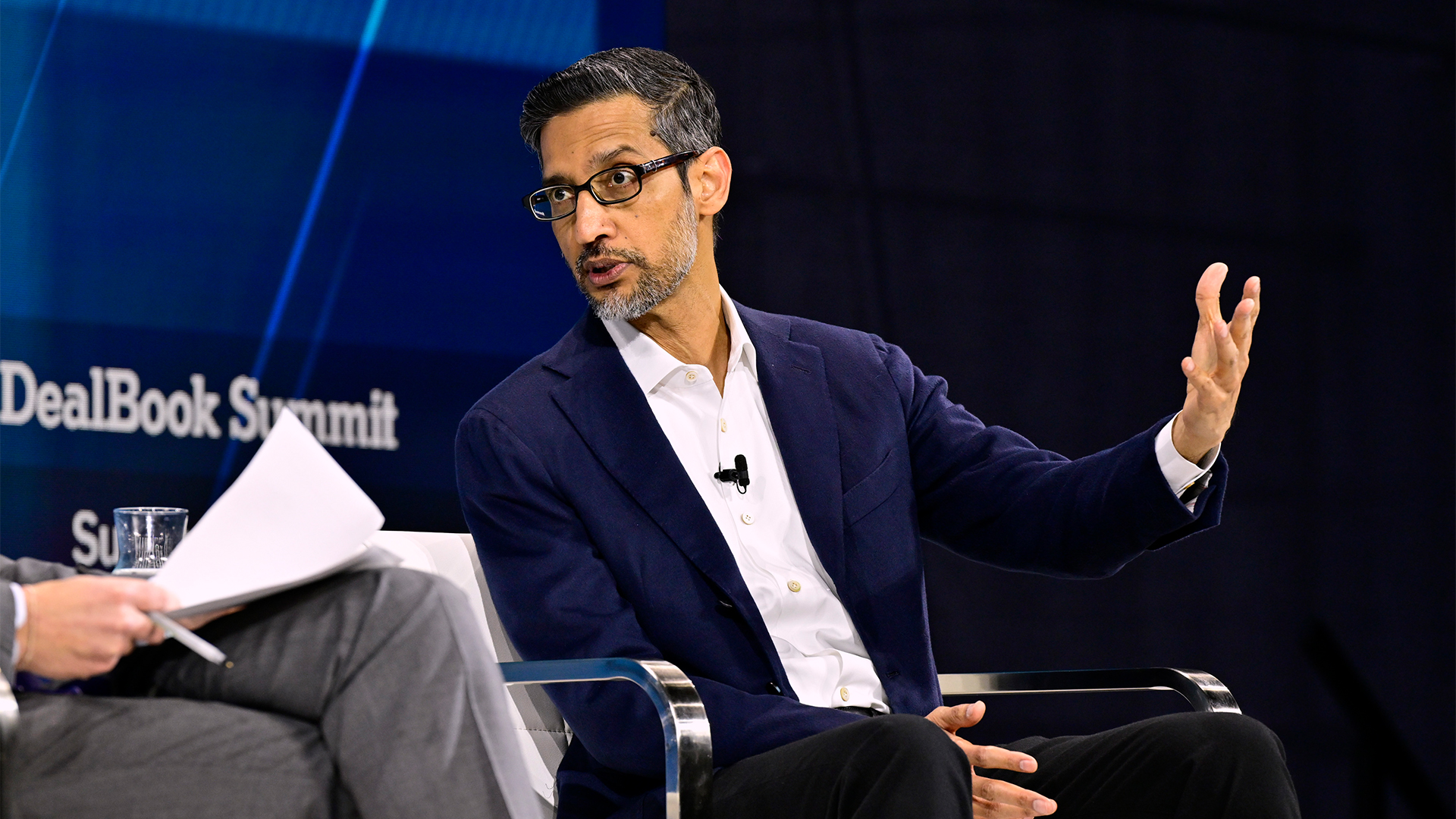
Sign up today and you will receive a free copy of our Future Focus 2025 report - the leading guidance on AI, cybersecurity and other IT challenges as per 700+ senior executives
You are now subscribed
Your newsletter sign-up was successful
We better all hope claims of an AI “bubble” don’t come to fruition, because we’re all going to suffer if it eventually bursts.
That's according to Google CEO Sundar Pichai, who told the BBC in an interview that there was "irrationality" in the AI hype that could impact every company.
"I think no company is going to be immune, including us," he told the BBC, though he stressed Alphabet and Google were in a good position to withstand any potential market shocks.
Pichai compared the hype and investment around AI to the early days of the web, admitting there was "excess investment", but adding that the impact of the internet was worth the costs.
"I expect AI to be the same. So I think it's both rational and there are elements of irrationality through a moment like this."
While concerns still linger over the long-term return on investment from AI adoption, this hasn't stopped big tech companies committing to bold spending plans over the next decade.
Google-rival OpenAI has committed $1.4 trillion in spending over the next several years for cloud and data center infrastructure, despite predictions it will post just $20 billion in revenue itself this year.
Sign up today and you will receive a free copy of our Future Focus 2025 report - the leading guidance on AI, cybersecurity and other IT challenges as per 700+ senior executives
At the same time that such wild spending is happening, Pichai told the BBC that anyone using AI should "not blindly trust everything they say."
"We take pride in the amount of work we put in to give us as accurate information as possible, but the current state-of-the-art AI technology is prone to some errors,” he said.
Google's growing energy concerns
Alongside potential market disruptions, Pichai also warned about the long-term impact on the energy sector.
Energy used by data centers in the US is expected to triple by 2028, making up 12% of total demand, and globally AI is predicted to use as much energy as Japan by 2030.
Pichai noted that meeting those supply-related challenges were necessary to keep the economy moving.
"You don't want to constrain an economy based on energy, and I think that will have consequences," he said.
Of course, there are consequences beyond financial ones. When asked about AI's energy requirements, Pichai admitted surging power demands had indeed caused Alphabet's climate targets to slip, though he stressed its 2030 net zero goal was still possible.
Work disruption
In the sweeping interview, Pichai also pointed to the long-term impact of AI on individual workers. The Google chief said that people who adapt to AI will do better in their work than those who don't – despite his own admission of the flaws in the technology that meant it remained prone to errors in accuracy.
Pichai’s comments come in the wake of repeated warnings about how the technology will shape future labor markets.
Entry-level workers, for example, are expected to bear the brunt of the impact from AI, while earlier this month analysts warned that AI job cuts could even prompt a revival of offshoring, meaning any rehiring after AI benefits fail to materialize won't help those laid off.
These concerns have been tempered by some industry stakeholders, however, with OpenAI co-founder Andrej Karpathy recently insisting agents were nowhere near ready to begin stealing jobs.
"It doesn't matter whether you want to be a teacher [or] a doctor," he said. "All those professions will be around, but the people who will do well in each of those professions are people who learn how to use these tools."
"We will have to work through societal disruptions," he said.
Make sure to follow ITPro on Google News to keep tabs on all our latest news, analysis, and reviews.
MORE FROM ITPRO
Freelance journalist Nicole Kobie first started writing for ITPro in 2007, with bylines in New Scientist, Wired, PC Pro and many more.
Nicole the author of a book about the history of technology, The Long History of the Future.
-
 AWS CEO Matt Garman isn’t convinced AI spells the end of the software industry
AWS CEO Matt Garman isn’t convinced AI spells the end of the software industryNews Software stocks have taken a beating in recent weeks, but AWS CEO Matt Garman has joined Nvidia's Jensen Huang and Databricks CEO Ali Ghodsi in pouring cold water on the AI-fueled hysteria.
-
 Deepfake business risks are growing
Deepfake business risks are growingIn-depth As the risk of being targeted by deepfakes increases, what should businesses be looking out for?
-
 Google says hacker groups are using Gemini to augment attacks – and companies are even ‘stealing’ its models
Google says hacker groups are using Gemini to augment attacks – and companies are even ‘stealing’ its modelsNews Google Threat Intelligence Group has shut down repeated attempts to misuse the Gemini model family
-
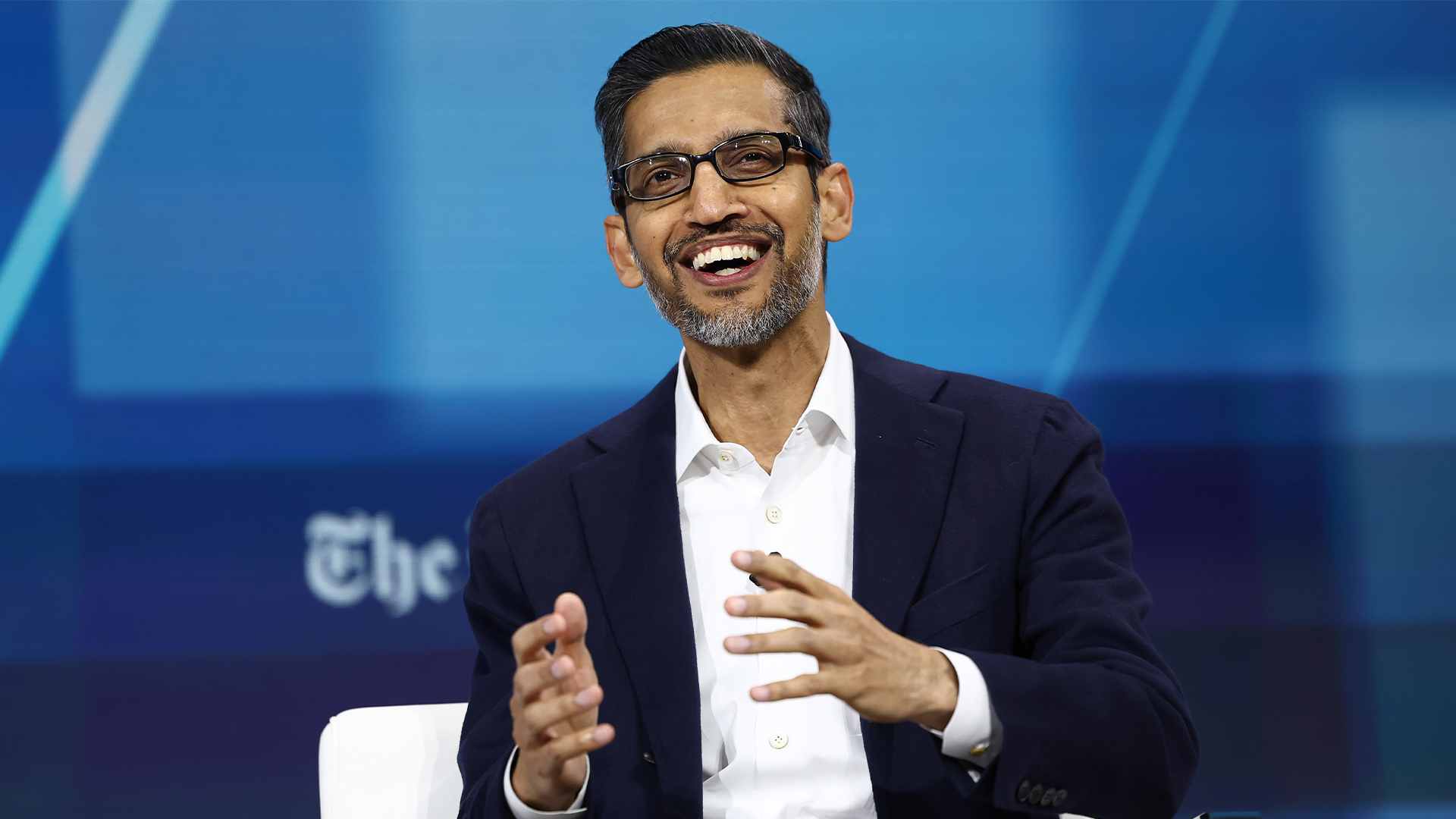 ‘The fastest adoption of any model in our history’: Sundar Pichai hails AI gains as Google Cloud growth, Gemini popularity surges
‘The fastest adoption of any model in our history’: Sundar Pichai hails AI gains as Google Cloud growth, Gemini popularity surgesNews The company’s cloud unit beat Wall Street expectations as it continues to play a key role in driving AI adoption
-
 ‘In the model race, it still trails’: Meta’s huge AI spending plans show it’s struggling to keep pace with OpenAI and Google – Mark Zuckerberg thinks the launch of agents that ‘really work’ will be the key
‘In the model race, it still trails’: Meta’s huge AI spending plans show it’s struggling to keep pace with OpenAI and Google – Mark Zuckerberg thinks the launch of agents that ‘really work’ will be the keyNews Meta CEO Mark Zuckerberg promises new models this year "will be good" as the tech giant looks to catch up in the AI race
-
 DeepSeek rocked Silicon Valley in January 2025 – one year on it looks set to shake things up again with a powerful new model release
DeepSeek rocked Silicon Valley in January 2025 – one year on it looks set to shake things up again with a powerful new model releaseAnalysis The Chinese AI company sent Silicon Valley into meltdown last year and it could rock the boat again with an upcoming model
-
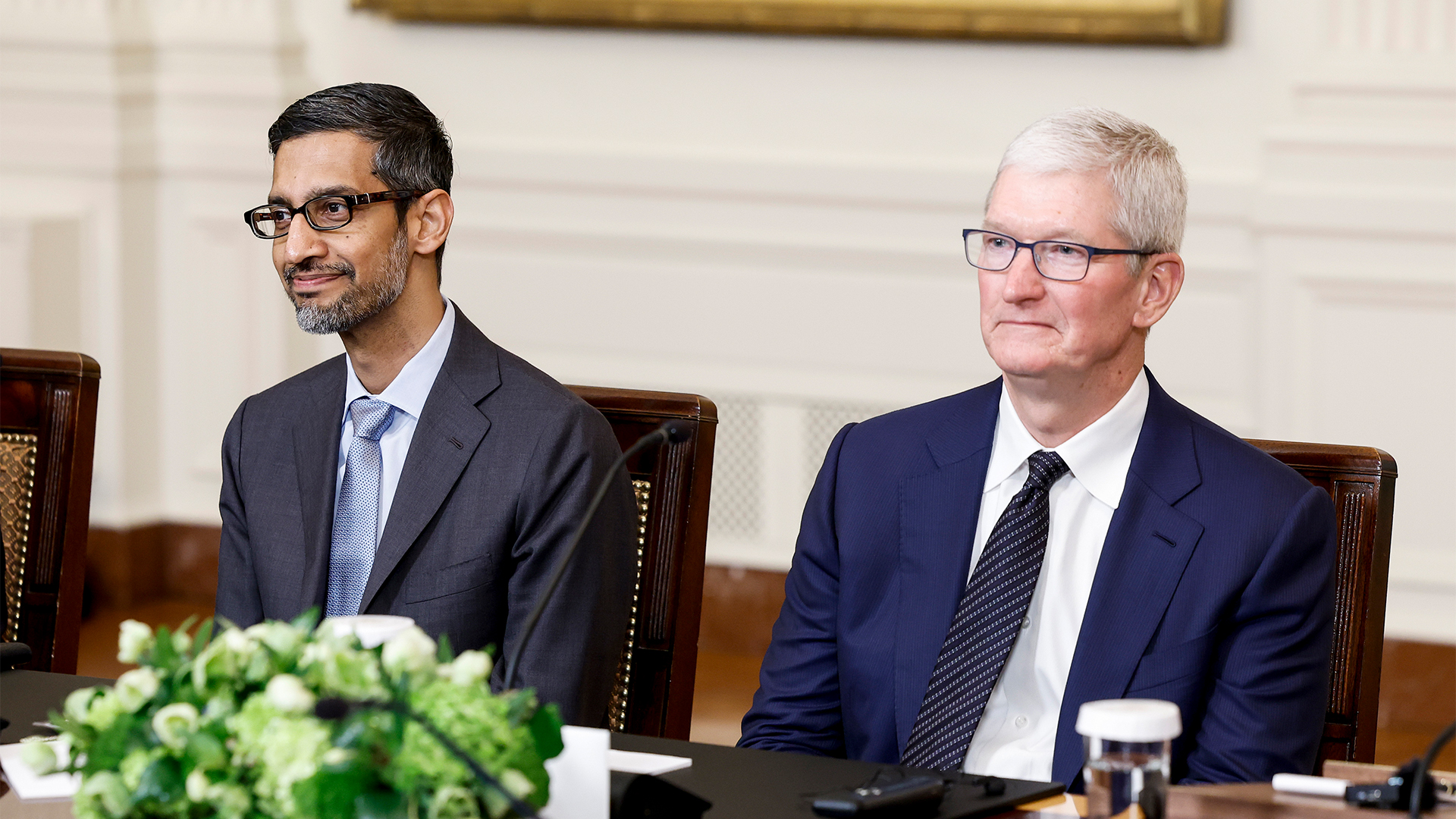 Google’s Apple deal is a major seal of approval for Gemini – and a sure sign it's beginning to pull ahead of OpenAI in the AI race
Google’s Apple deal is a major seal of approval for Gemini – and a sure sign it's beginning to pull ahead of OpenAI in the AI raceAnalysis Apple opting for Google's models to underpin Siri and Apple Intelligence is a major seal of approval for the tech giant's Gemini range – and a sure sign it's pulling ahead in the AI race.
-
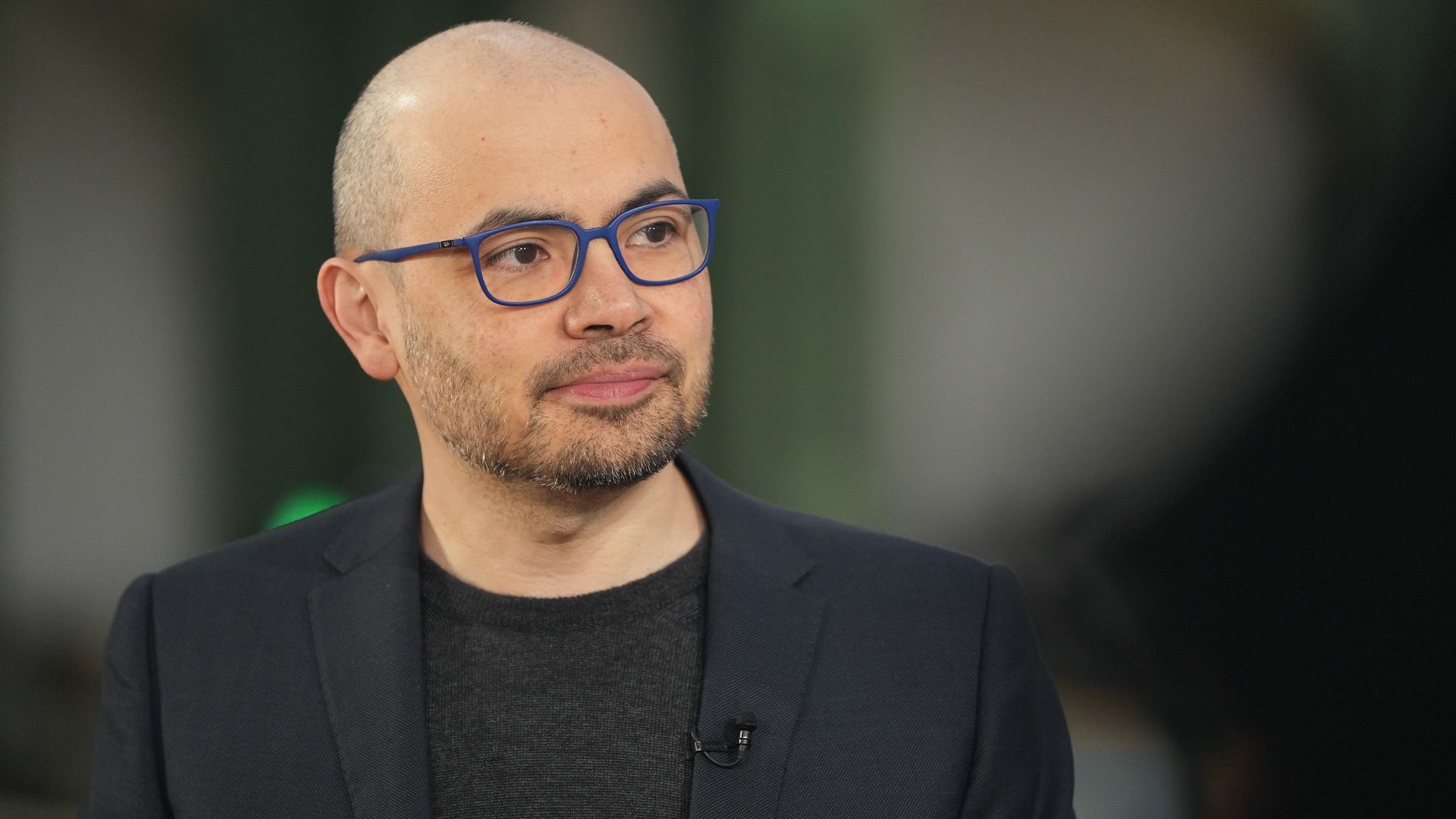 Google DeepMind CEO Demis Hassabis thinks startups are in the midst of an 'AI bubble'
Google DeepMind CEO Demis Hassabis thinks startups are in the midst of an 'AI bubble'News AI startups raising huge rounds fresh out the traps are a cause for concern, according to Hassabis
-
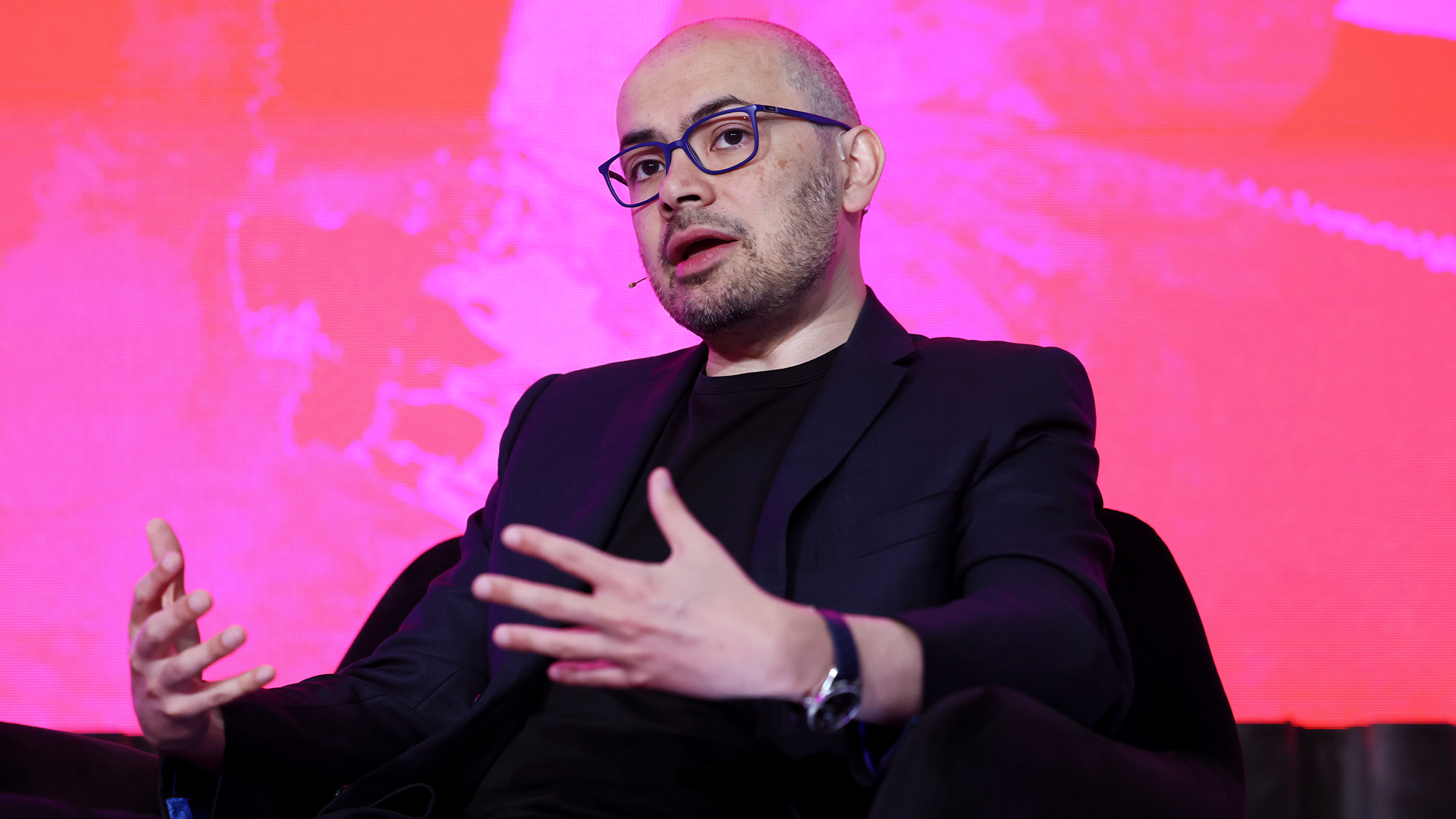 Google DeepMind partners with UK government to boost AI research
Google DeepMind partners with UK government to boost AI researchNews The deal includes the development of a new AI research lab, as well as access to tools to improve government efficiency
-
 Google blows away competition with powerful new Gemini 3 model
Google blows away competition with powerful new Gemini 3 modelNews Gemini 3 is the hyperscaler’s most powerful model yet and state of the art on almost every AI benchmark going
